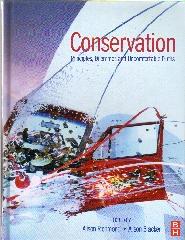Conservation ethics and principles, such as minimum intervention, integrity and authenticity of an object, addressed from a wide range of professional and academic viewpoints, including contributions from curators, museology theorists and philosophers Theory and principles presented and analysed both from a Western perspective and outside the boundaries of North America and Europe Brings together conservation theory relevant to collections, historic buildings, monuments and archaeological sitesPrinciples of Conservation is a multi-perspective critical analysis of the ethics that guide the conservation profession. Contributions from authors in the fields of conservation, museology, history, ethnography and philosophy present case studies from the US, UK, Australia, South America and Europe, enabling the reader to make comparisons across subjects and disciplines. Issues covered include conservation of human remains, historic buildings and art, and the future of conservation, such as teaching principles and public engagement with the profession.' As well as building on recent theories of conservation and providing a detailed guide to principles, the book provides a thorough investigation of the application of principles in decision making and practical conservation. Principles of Conservation is an essential reference text for conservators, conservation students, curators and other museum professionals. Conservation ethics and principles, such as minimum intervention, integrity and authenticity of an object, addressed from a wide range of professional and academic viewpoints, including contributions from curators, museology theorists and philosophers Theory and principles presented and analysed both from a Western perspective and outside the boundaries of North America and Europe Brings together conservation theory relevant to collections, historic buildings, monuments and archaeological sites

(0 Comentarios)